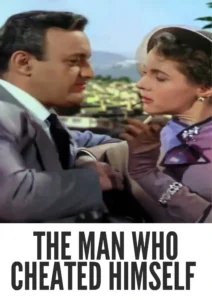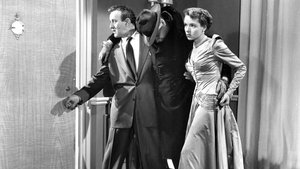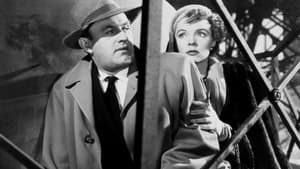Contact: [email protected]
Video Sources 0 Views
- Watch trailer
- The Man Who Cheated Himself


Synopsis
Table of Contents
ToggleReview: The Man Who Cheated Himself (1950) – A Gripping Film Noir Classic

Introduction
The Man Who Cheated Himself, released in 1950, is a gripping film noir thriller that keeps audiences on the edge of their seats from start to finish. Directed by Felix E. Feist, this hidden gem of the noir genre is renowned for its taut narrative, atmospheric cinematography, and standout performances. In this review, we’ll explore the dark and suspenseful world of The Man Who Cheated Himself and its enduring impact on the noir tradition.
Check The Full Colorized Movies List
Check Our Colorized Movies Trailer Channel
Understanding The Man Who Cheated Himself (1950): Director, Cast, and Genre
Directed by Felix E. Feist, The Man Who Cheated Himself features a talented cast led by Lee J. Cobb as Lieutenant Ed Cullen, Jane Wyatt as Lois Frazer, and John Dall as Andy Cullen. The film falls within the genre of film noir, known for its shadowy visuals, morally ambiguous characters, and intricate plots.
Exploring the World of The Man Who Cheated Himself (1950): Plot and Characters
Set against the backdrop of San Francisco, The Man Who Cheated Himself follows the story of Lieutenant Ed Cullen, a dedicated police officer who becomes embroiled in a deadly affair with the beautiful and manipulative Lois Frazer. When Ed’s younger brother, Andy, becomes implicated in a murder case, Ed must navigate a web of deceit and betrayal to protect his family and uphold the law.
The Art of Film Colorization
While The Man Who Cheated Himself was originally filmed in black and white, its early colorized version adds a new layer of visual richness and depth to its noir aesthetic. The colorization process enhances the film’s atmospheric cinematography and captures the moody ambiance of 1950s San Francisco with stunning clarity.
Early Colored Films: A Brief History
The history of early colored films is marked by innovation and experimentation as filmmakers sought to enhance the visual appeal of their movies. From hand-tinted frames to pioneering technicolor processes, the evolution of colorization techniques transformed the cinematic landscape, offering audiences a new way to experience classic stories and immersive settings.
The Man Who Cheated Himself (1950) and Its Early Colored Version
The decision to release The Man Who Cheated Himself in a colorized format was made with the intention of immersing audiences in the vibrant world of film noir and enhancing the film’s visual impact. While some purists may prefer the original black and white version, the early colorized edition of the film adds a new dimension to its noir aesthetic and captures the allure of its shadowy characters and settings with stunning clarity.
The Debate Over Film Colorization
The debate over film colorization continues to divide audiences and industry professionals alike. While some argue that colorization breathes new life into classic films and makes them more accessible to modern audiences, others maintain that it compromises the artistic integrity of the original work. As technology advances and filmmaking techniques evolve, the debate over colorization remains a topic of ongoing discussion within the film community.
Examining The Man Who Cheated Himself (1950) as an Early Colored Film
Viewing The Man Who Cheated Himself in its early colorized iteration offers audiences a fresh perspective on its noir aesthetic and atmospheric storytelling. The colorization process enhances the film’s visual appeal and captures the moody ambiance of 1950s San Francisco with stunning clarity. As Lieutenant Ed Cullen unravels the mystery surrounding the murder case, viewers are drawn into a world of deceit, betrayal, and moral ambiguity that resonates with timeless relevance.
Influence and Legacy: The Man Who Cheated Himself (1950)’s Impact on Cinema
The Man Who Cheated Himself is widely regarded as a classic example of the film noir genre that continues to captivate audiences with its taut narrative, atmospheric cinematography, and standout performances. Its enduring legacy has inspired generations of filmmakers and remains a beloved favorite among fans of classic Hollywood cinema. As a testament to its lasting impact, The Man Who Cheated Himself remains a gripping thriller that continues to enthrall audiences with its dark and suspenseful storytelling.
Director’s Cinematic Legacy: Beyond The Man Who Cheated Himself (1950)
Felix E. Feist’s directorial legacy extends beyond The Man Who Cheated Himself, encompassing a diverse body of work in film and television. As a filmmaker, Feist was known for his ability to create tension and suspense onscreen, crafting compelling narratives that kept audiences on the edge of their seats. The Man Who Cheated Himself stands as a testament to his talent and creativity, solidifying his reputation as one of the great directors of classic Hollywood noir.
Themes Explored in The Man Who Cheated Himself (1950)
At its core, The Man Who Cheated Himself explores themes of deception, betrayal, and moral ambiguity in the seedy underbelly of 1950s San Francisco. Through its intricate plot and complex characters, the film delves into the dark and dangerous world of crime and corruption, challenging viewers to confront their own assumptions about right and wrong.
Reception and Controversy Surrounding The Man Who Cheated Himself (1950)
Upon its release, The Man Who Cheated Himself received widespread critical acclaim for its taut narrative, atmospheric cinematography, and standout performances. However, the decision to release the film in a colorized format sparked debate among fans and critics alike. While some praised the colorization process for enhancing the film’s visual appeal, others questioned its necessity and expressed concern about preserving the integrity of Feist’s original vision.
Where to Watch The Man Who Cheated Himself (1950) Online
For those eager to experience The Man Who Cheated Himself for themselves, the film is readily available on popular streaming platforms such as Amazon Prime Video, Google Play Movies, and iTunes. Whether viewed in its original black and white format or its early colorized iteration, The Man Who Cheated Himself offers a gripping cinematic experience that is sure to captivate audiences.
FAQs About The Man Who Cheated Himself (1950)
1. Is The Man Who Cheated Himself based on a true story?
No, The Man Who Cheated Himself is a fictional film noir thriller that follows the story of Lieutenant Ed Cullen as he becomes embroiled in a deadly affair and murder case in 1950s San Francisco. While the film’s storyline is a work of fiction, its portrayal of crime and corruption in the city draws inspiration from real-life events and universal themes.
2. Who starred in The Man Who Cheated Himself?
The Man Who Cheated Himself stars Lee J. Cobb as Lieutenant Ed Cullen, Jane Wyatt as Lois Frazer, and John Dall as Andy Cullen. Their compelling performances bring depth and complexity to the film’s characters, capturing the tension and suspense of this gripping noir thriller.
3. What is the central message of The Man Who Cheated Himself?
At its core, The Man Who Cheated Himself explores themes of deception, betrayal, and moral ambiguity in the seedy underbelly of 1950s San Francisco. Through its intricate plot and complex characters, the film delves into the dark and dangerous world of crime and corruption, challenging viewers to confront their own assumptions about right and wrong.
4. Why was The Man Who Cheated Himself released in a colorized format?
The decision to release The Man Who Cheated Himself in a colorized format was made with the intention of immersing audiences in the vibrant world of film noir and enhancing the film’s visual impact. While some purists may prefer the original black and white version, the early colorized edition of the film adds a new dimension to its noir aesthetic and captures the allure of its shadowy characters and settings with stunning clarity.
5. What is the legacy of The Man Who Cheated Himself?
The Man Who Cheated Himself is widely regarded as a classic example of the film noir genre that continues to captivate audiences with its taut narrative, atmospheric cinematography, and standout performances. Its enduring legacy has inspired generations of filmmakers and remains a beloved favorite among fans of classic Hollywood cinema.
6. Are there any sequels or remakes of The Man Who Cheated Himself?
While there have been no official sequels or remakes of The Man Who Cheated Himself, the film’s enduring legacy has inspired countless adaptations and reinterpretations in various media. However, none have achieved the same level of critical acclaim or cultural significance as the original 1950 film.
7. Where can I watch The Man Who Cheated Himself online?
For those eager to experience The Man Who Cheated Himself for themselves, the film is readily available on popular streaming platforms such as Amazon Prime Video, Google Play Movies, and iTunes. Whether viewed in its original black and white format or its early colorized iteration, The Man Who Cheated Himself offers a gripping cinematic experience that is sure to captivate audiences.
Conclusion
In conclusion, The Man Who Cheated Himself (1950) stands as a gripping film noir classic that continues to enthrall audiences with its taut narrative, atmospheric cinematography, and standout performances. Whether viewed in its original black and white format or its early colorized iteration, Felix E. Feist’s masterful direction and the compelling performances of the cast offer a cinematic experience that is both thrilling and suspenseful. As Lieutenant Ed Cullen navigates the treacherous world of crime and corruption in 1950s San Francisco, viewers are drawn into a web of deceit and betrayal that keeps them on the edge of their seats until the very end. With its enduring legacy and universal themes, The Man Who Cheated Himself remains a timeless treasure of the film noir genre that continues to captivate and inspire audiences around the world.












